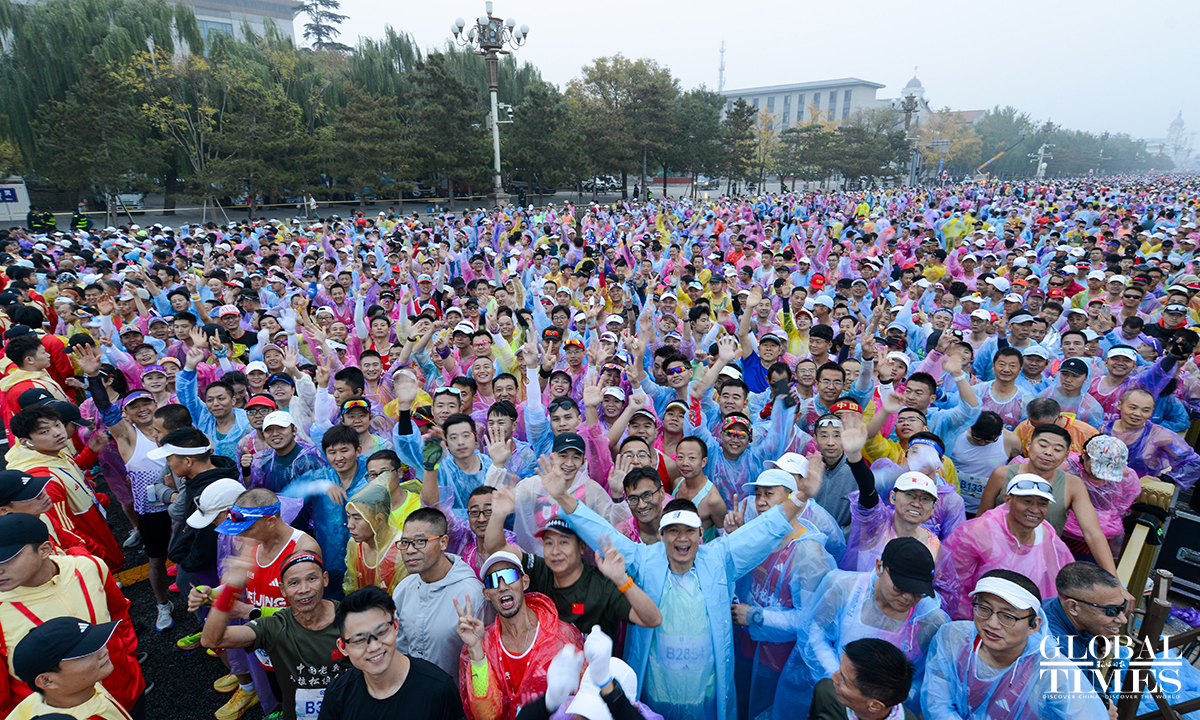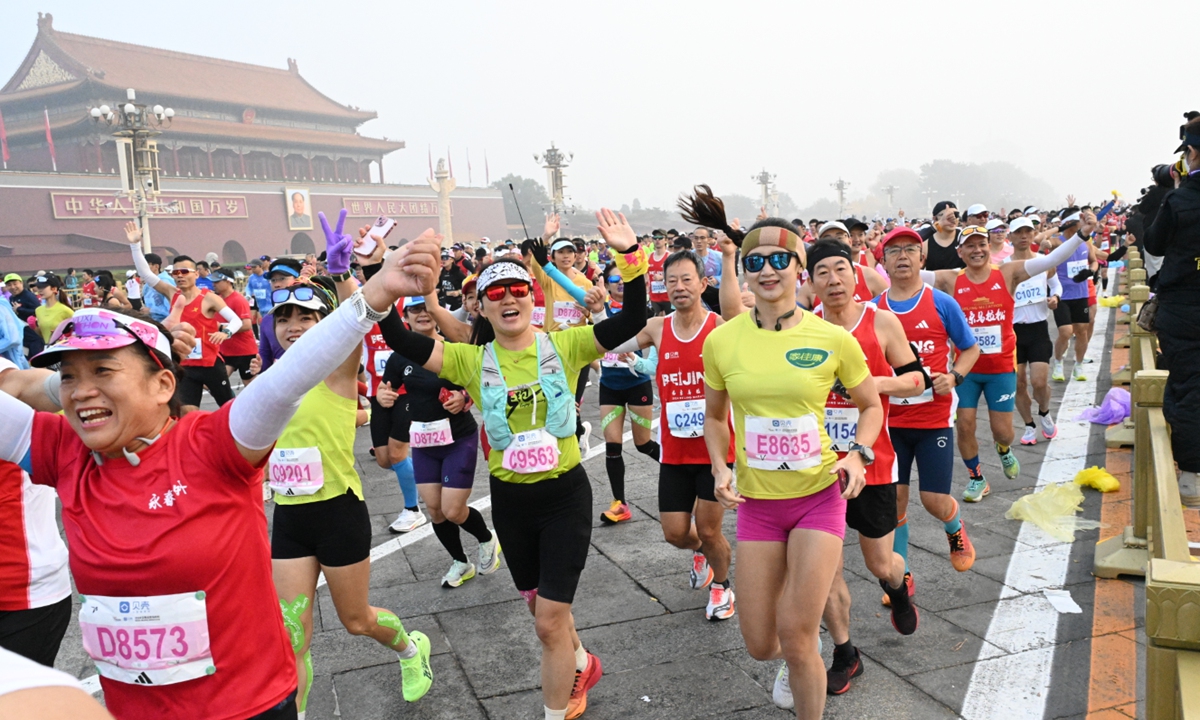
Photo: Chen Tao/GT
Approximately 30,
MKsports000 runners participated in the Beijing Marathon on Sunday morning, navigating the Chinese capital's key roads and landmarks.
According to the organizing committee, out of the record 182,000 applicants from 43 countries and regions who signed up in early October, approximately 30,000 participated this year.
"The growing popularity of marathons in China reflects the growing emphasis on health and fitness," Zhu Weiwei, a runner from Beijing, told the Global Times. "As the number of participants continues to rise each year, the enthusiasm for physical activity is reaching new heights. This has not only strengthened individuals' physical well-being but also contributed significantly to the goal of national fitness."
In the men's race, Lemi Hayle of Ethiopia won with a time of 2:09:16, followed by Bethwel Chumba of Kenya at 2:09:30 and China's Chen Tianyu at 2:09:48.
In the women's competition, Vicoty Chepngeno of Kenya took first place with a time of 2:21:56, followed by Ethiopia's Rahma Tusa at 2:24:31 and Angela Tanui of Kenya at 2:25:41.
"In recent years, Chinese athletes have achieved continuous progress in competitions, which is truly encouraging. This trend highlights the influence of sports on the populace," Zhu noted.

Participants run past the Tian'anmen Square during the Beijing Marathon in Beijing, on November 3, 2024. Photo: Chen Tao/GT
The course of the flagship event winded past some of Beijing's most iconic landmarks, offering runners a unique experience as they traversed the capital.
Starting from Tian'anmen Square, participants ran along West Chang'an Avenue, passing by well-known sites including the Cultural Palace of Ethnic Communities, the Military Museum of the Chinese People's Revolution and the China Millennium Monument before concluding at Olympic Park Boulevard.
Participating in his second Beijing Marathon, Li Jinwei, a runner from Xi'an, Northwest China's Shaanxi Province, achieved a personal best with a finish time of 2 hours and 48 minutes - a nearly 9-minute improvement over his previous record.
"The Beijing Marathon is a national marathon," Li told the Global Times. "The starting point is at Tian'anmen Square, the heart of the country, making it a very significant event in the marathon circuit. Beijing has many attractions, so I brought my family along this time to enjoy some sightseeing as well."
Li started running in 2019. He recalled that back then few people would go out running early in the morning. "There weren't many runners sat that time; but since 2023, people have become more health-conscious. Now I see more and more people running in well-maintained parks," he said.
Li noted that 20 years ago, the number of runners finishing a marathon under three hours was limited, but now there are many breaking three hours.
"Today, a lot of runners crossed the finish line in under 2 hours and 50 minutes. It's clear that marathons in China have developed rapidly in recent years, drawing in more young people and enjoying a significant performance improvement," Li added.
Zhu noted that autumn in Beijing is beautiful, and she was deeply moved by the ginkgo leaves falling down while she was running. "Each city marathon in China has its own unique features, with routes passing by iconic landmarks that reflect a city's character," she said.
The year 2024's race included competitions for professional and amateur runners, and special categories for families and visually impaired runners. The visually impaired group was supported by sighted guides who ran alongside them.
"I saw many visually impaired runners on the course, moving at impressive speeds. Their spirit was incredibly inspiring," Zhu said.
The Beijing Marathon, which was first held in 1981, is a celebrated event in China, attracting runners of all levels and fostering a spirit of endurance.
Qiu Qihong, a representative from the Beijing Municipal Ecological and Environmental Monitoring Center, told the Global Times that in recent years, China has vigorously promoted the rapid development of marathons, which has not only boosted city branding and publicity but also transformed marathons into events that blend sports with culture.
"Today, marathons are not just competitive sports, instead they have also become an important platform for cultural exchange within cities," he said.


